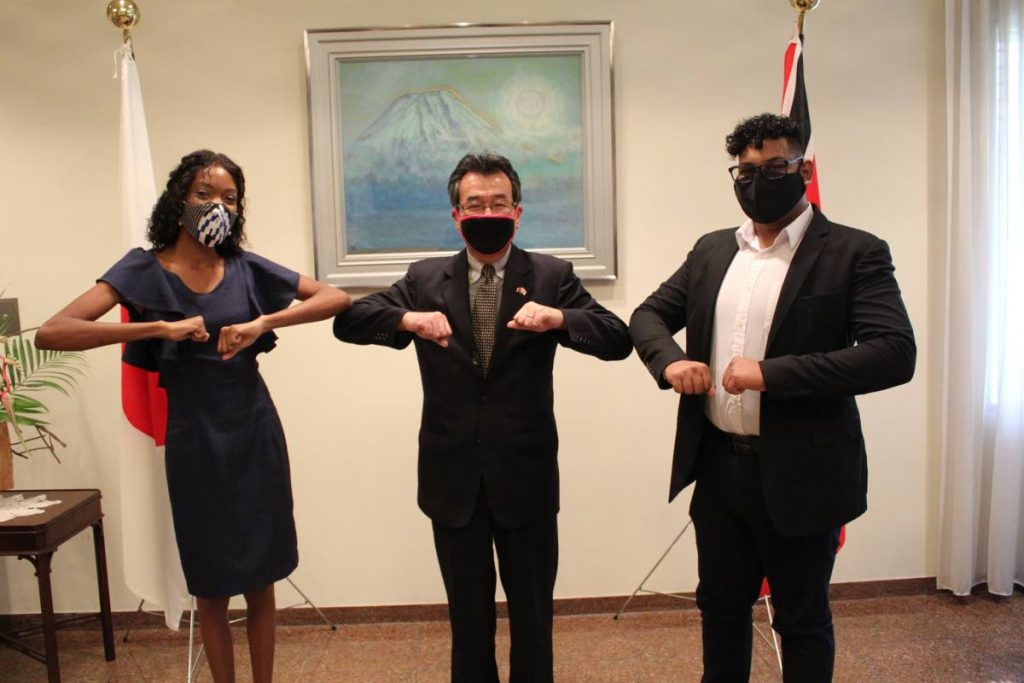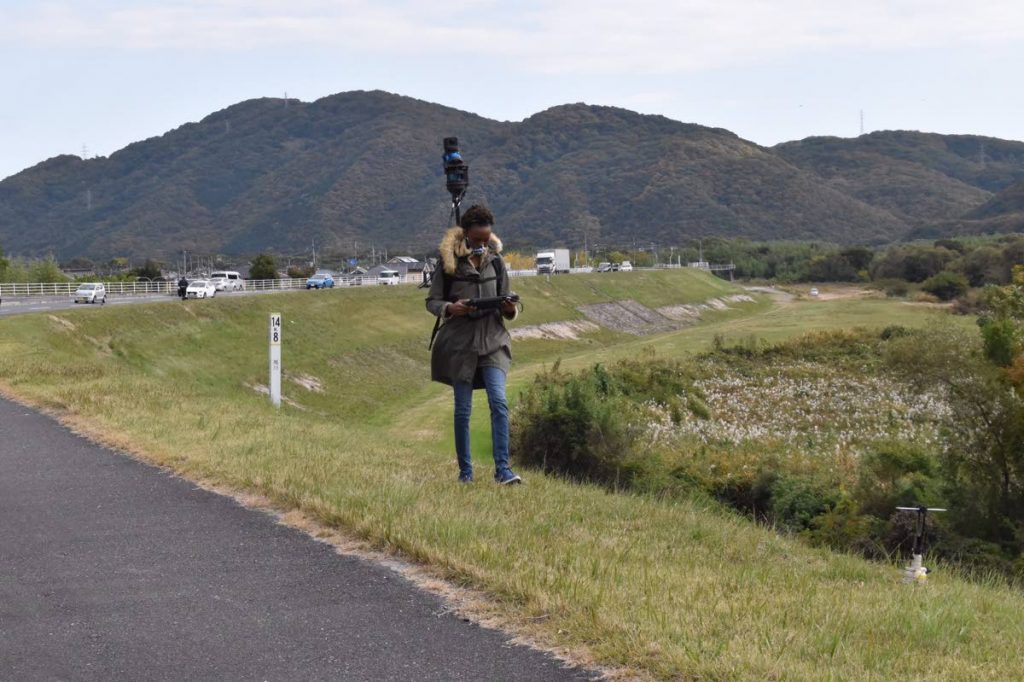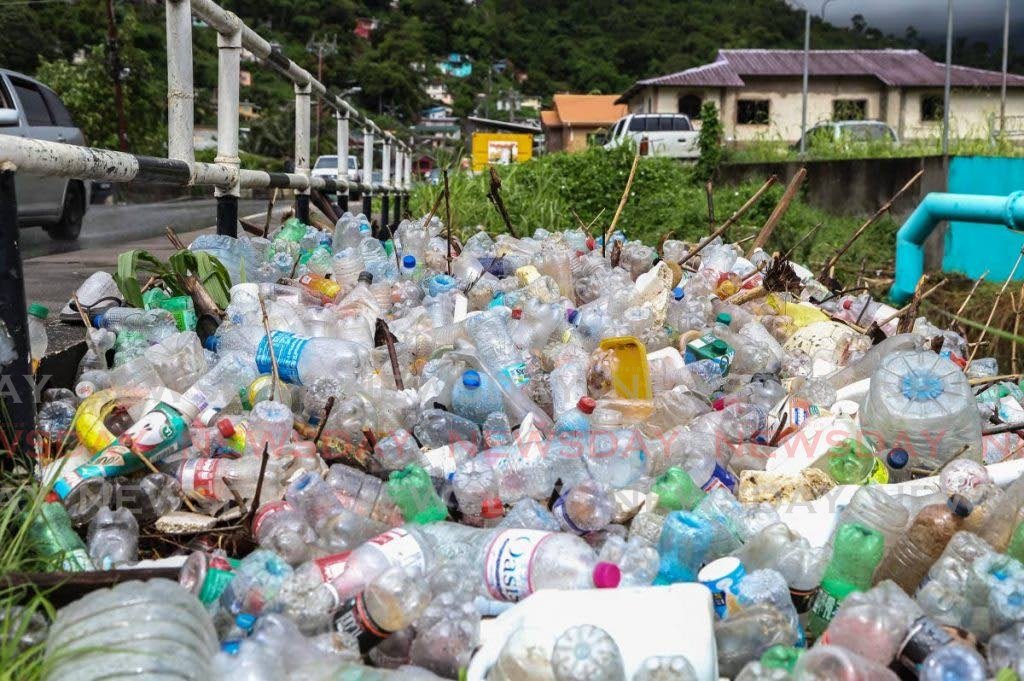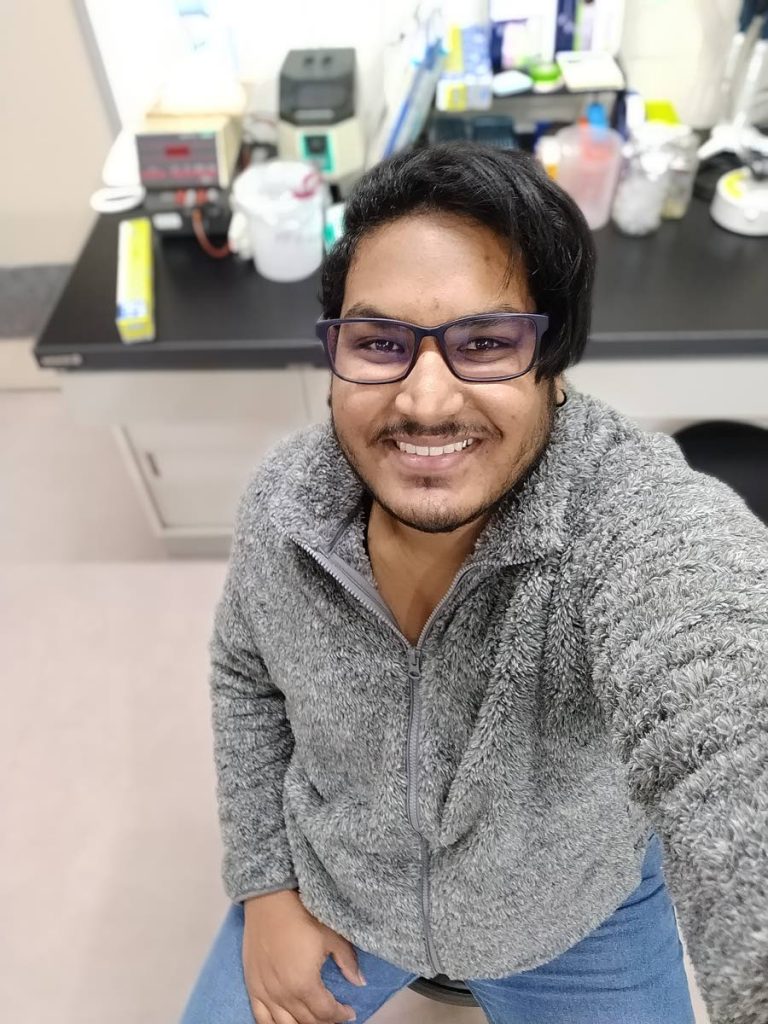Trini research students in Japan ready to share what they learn

Travel concerns surrounding the pandemic has resulted in closed borders in TT and mandatory quarantine in others. Still, a select few manage to slip across the borders with good reason, of course. Such is the case for two research students studying in Japan.
Afia Boney and Jonathan Ramtahal are the most recent recipients of the Monbukagakusho (MEXT) scholarship programme offered annually by the Embassy of Japan.
The pair was allowed to leave the country to pursue their education at two Japan universities in areas of interest to the local economy.
Speaking to Sunday Newsday via e-mail, the students discuss their fields of study and how they plan to improve productivity in their respective industries upon their return to TT.
Prioritising disaster preparedness
With a first degree in geology, Boney is now at the Graduate School of Environmental and Life Science, Okayama University. The national university is ranked 14 in Japan, which has an estimated 796 universities.
Boney said her interest in geology was sparked during career week at her secondary school, St Francois Girls’ College. “A volcanologist introduced his field of study and I decided I wanted to go into that…anything with disasters as a matter of fact,” she said.
Her sister, at the time, visited Japan and shared her experience with Boney.
The La Horquetta native, an area known for issues with flooding, said she would research case studies of modern examples coming out of Japan of disaster preparedness techniques that she was, at the time, only exposed to in theory. “Since then, Japan has been on my radar.”
She said after completing her bachelor’s in geology at the University of the West Indies (UWI) Mona, Jamaica, she returned home to pursue a career in the oil and gas industry but had difficulties finding a job.

“After years of pursuit, I slowly began to lose interest in the oil and gas sector. Then I remembered my original goal and decided to return to my love of disasters.”
Boney explained that both TT and Japan have had to tackle issues with flooding in recent years, including damage to property and loss of life. “My research will be focused on reducing the impacts of flooding using drones.”
She said her theory is still in the works, but she believes with the application of the science and tools she would be exposed to in Japan, she can create a methodology that can minimise the damage.
She is hoping to use her research to change the culture surrounding disaster preparedness in agencies such as the Office of Disaster Preparedness and the regional corporations. “(They) have been doing a great job thus far in terms of disaster preparedness. I hope to develop what has already been built into something sustainable for future generations.”
Climate change, plastic pollution, and TT waters
Ramtahal is a biology research student at the Graduate School of Life and Earth Sciences, University of Tsukuba. The university is ranked 10 nationally.
He said growing up in the rural community of Plum Mitan, Biche made him curious about the natural world around him. “I was a very curious child, always interested in how things worked.”
His curiosity and love of nature led him to pursue a double major at UWI, St Augustine, in biology and environmental and natural resource management.

Ramtahal’s current research focuses on the combined impact of ocean acidification and warming (climate change) and the stress of ingesting microplastic pollution on marine bivalves (oysters, mussels, and clams).
He said millions of tonnes of these species are farmed, harvested and consumed each year. Ramtahal explains when these organisms consume microplastics in polluted waters, it may have adverse effects on consumers.
“Research funding and resources can be quite limiting in TT,” he said. “We are a tropical country and a small island developing nation where the effects of climate change are projected to affect us most adversely.”
Ramtahal hopes that through his research, TT sees the importance of sustainable alternatives to ocean conservation and put more effort into “creating a culture where we are more conscious of how our everyday activities can impact our lives in the long term.”
Ramtahal said simple solutions such as recycling, taking garbage bags to the beach and cleaning up after ourselves can have a positive impact. “We should not wait until legislation is enforced to do the right thing.”
Travelling during a pandemic
Boney said travelling to Japan was difficult. “Your safety is at the forefront of your mind at all times. However, I was not scared. I did my part. I wore a mask, even switching while in transit. I sanitised frequently, washed my hands often, did not touch my face, observed social distancing where possible and trusted God to do the rest.”
Boney said her city feels safe and clean, even during a pandemic. Boney said as of November, there were a little over 200 active cases in Okayama which has an estimated population of 725,000.
“Life here is quite active compared to TT,” she said. The government of TT has implemented several restrictions since March, included limited gatherings and bans on in-house dining and drinking, to prevent the spread of the virus. “I was definitely surprised at some of the government offices and malls that I visited…personally I limit my outings just like I would in TT.”
Ramtahal said he was particularly impressed by the travel rules and regulations for travellers on his journey to Japan. “Quarantine rules in Tokyo on arrival were very strict. There was designated transport arranged by the university, so we did not interact with the public (and) all legal documents were prepared quickly.”
He said at the hotel, temperatures were checked twice daily, and they were required to report any symptoms. He said although students were not allowed to leave the hotel, food was available at a convenience store inside the hotel.
“Generally, Japan has opened its local economy, allowing dine-in and entertainment, however, each local government has been allowed to set their own rules to limit the spread of the virus.”
Ramtahal said although he started learning the language before he left for Japan, being immersed in the culture was a bit overwhelming. “It’s a steep learning curve that requires dedication. However, I am eager to learn (and) have started taking classes at the local community centre.”

He said he loves cooking and is excited to cook traditional Trini foods for his new friends in Japan. “A lot of people don’t know where TT is located and have never heard the name before,” but, he said, they are always very excited to learn.
Ramtahal said the University of Tsukuba has its own marine station. It is located in Shimoda City, Shizuoka Prefecture, and is a well-known tourist attraction during the summer months.
“Shimoda is a known fishing town so it is quite easy to get fresh fish and seafood year-round. There are many festivals throughout the year in this area related to the sea.”
Boney said she is very happy with her placement. “Okayama (located on the south-west end of the mainland) is known as the ‘Land of Sunshine’. Everyone here is polite and helpful even if they don’t speak English.”
Like Ramtahal, she said the language barrier will be the biggest hurdle for her, but she began learning before her arrival and, as part of the programme, is required to spend the first six months learning Japanese. Boney said for now she relies heavily on the assistance of Google translate.
“The Japanese culture is very ordered and organised. Everything has a time and place. The people have a dedicated and focused work ethic (and) I like that about them. Respect and knowing how to address people are very important.”
Because this is also a cultural exchange programme, Boney said she is looking forward to participating in the many activities open to her. “I have already expressed my interest in joining a volunteer community group for Okayama which will promote disaster awareness.”
She said an experience like this requires an open mind. “Try different foods, visit new places, meet new people, but don’t lose your authenticity,” she advised future applicants. “Look for opportunities because they are there. Don’t overthink it, just try.”


Comments
"Trini research students in Japan ready to share what they learn"